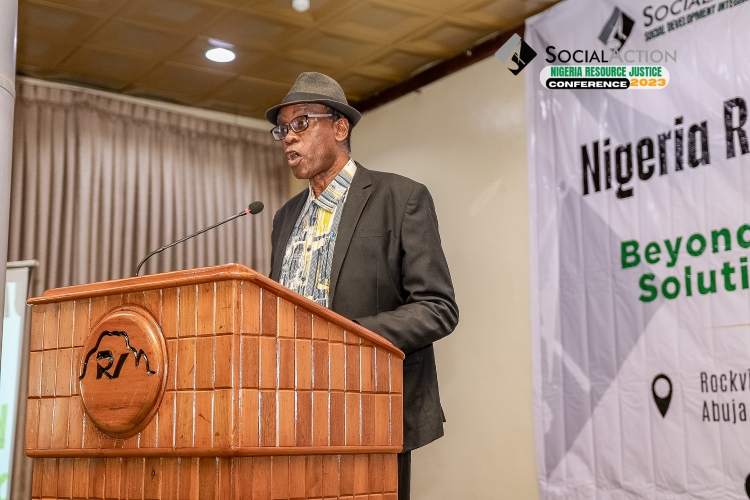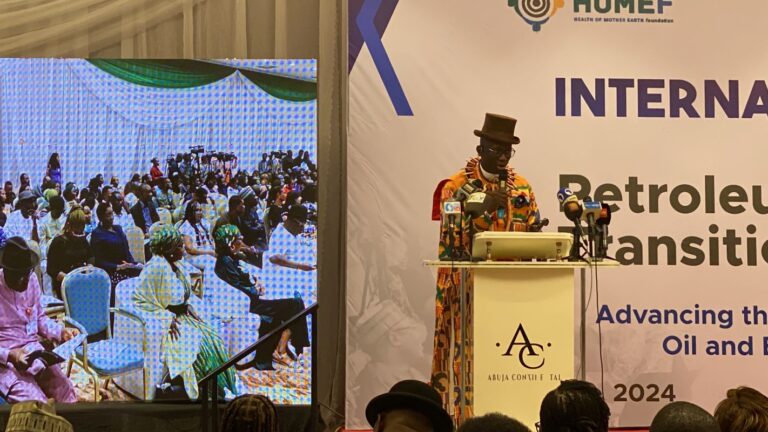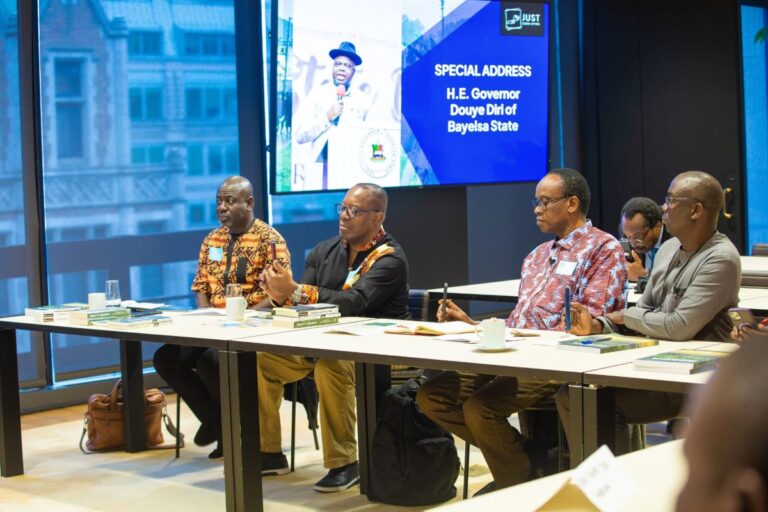COP28 and the Quest for Climate Justice.
A Keynote Presentation by Dr. Nnimmo Bassey, Executive Director, HOMEF at the Nigeria Resource Justice Conference 2023
In his Keynote Presentation, Dr Nnimmo Bassey expressed scepticism about the efficacy of global climate negotiations, highlighting the historical turning point at COP15 when the Copenhagen Accord shifted the focus to voluntary emissions reduction. He criticized the Copenhagen Accord for sidelining the binding emissions reduction commitments of Annex I countries, particularly the rich and industrialized nations responsible for significant pollution.
Dr Bassey lamented the lack of progress in subsequent COPs, including COP28, where they pointed out the inadequacies of the Paris Agreement and its emphasis on nationally determined contributions (NDCs). He picked holes with the voluntary nature of these commitments, arguing that nations prioritize economic interests over meaningful climate action. The emissions gap report, released before COP28, revealed that even if countries meet their commitments, the world is still on track for a 2.9°C temperature increase.
COP28’s key achievements were discussed, with emphasis on the endorsement of the Loss and Damage fund mechanism. However, he questioned the effectiveness of the fund, noting that the pledged amounts, particularly from developed nations, fell short and expressed concern about the erosion of the principle of common but differentiated responsibilities, highlighting how powerful countries pledged significantly less than expected.
His presentation touched on COP28’s acknowledgment of fossil fuels, particularly the mention of transitioning away from them but noted the contradictory nature of this acknowledgment, as countries continued to endorse natural gas and failed to address fossil fuel use in industries like plastics. He condemned the lack of concrete measures and the ambiguous language surrounding the transition.
Carbon capture, utilization, and sequestration were addressed, as he raised concerns about the speculative nature of carbon market mechanisms. Dr Bassey highlighted examples of companies buying territories for carbon sinks, leading to potential injustices and a new form of carbon colonialism.
He concluded by emphasizing the urgent need to end fossil fuel extraction due to its environmental and social harms and called for a consensus on the rights of nature and stressed the interconnectedness of the climate crisis with humanity’s irresponsible relationship with the planet. He finalised by issuing clarion call for responsible behaviour towards Earth for the sake of current and future generations.





